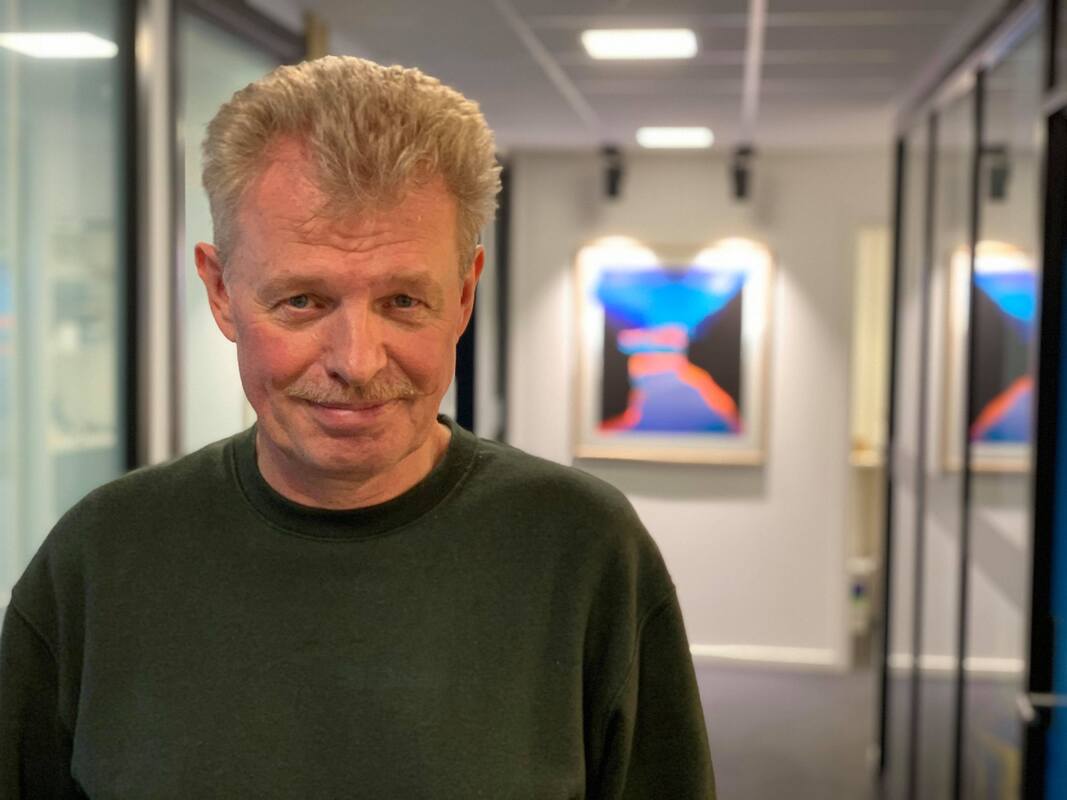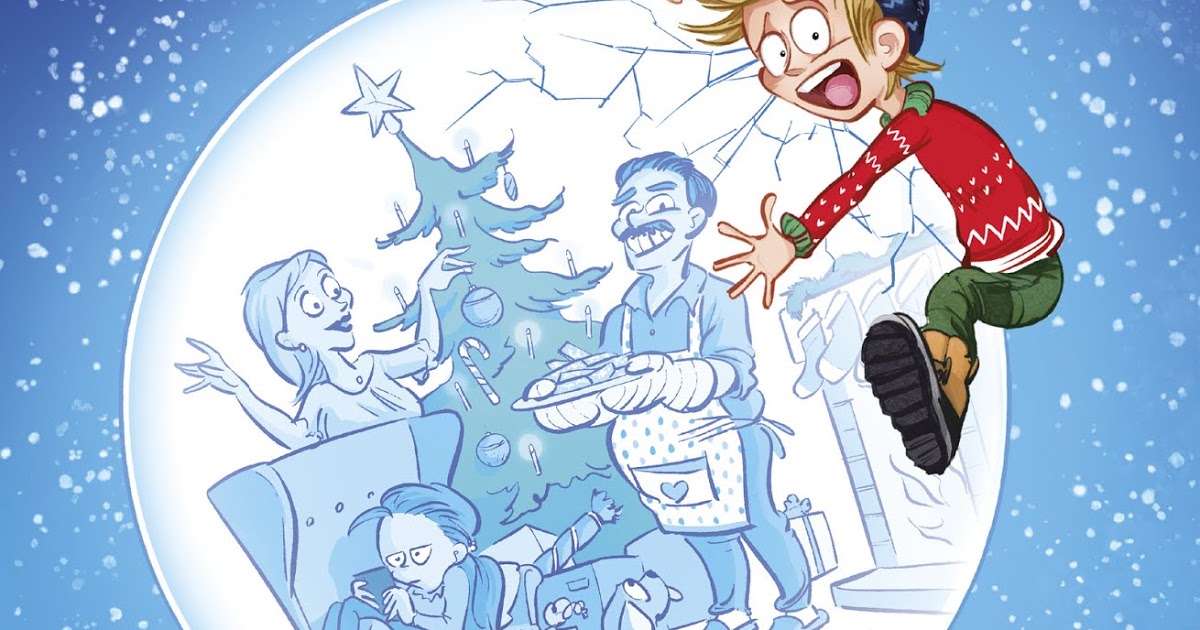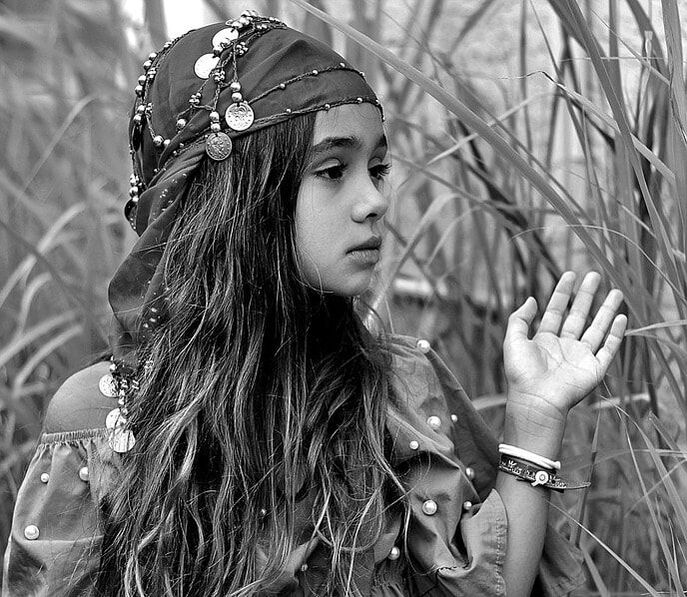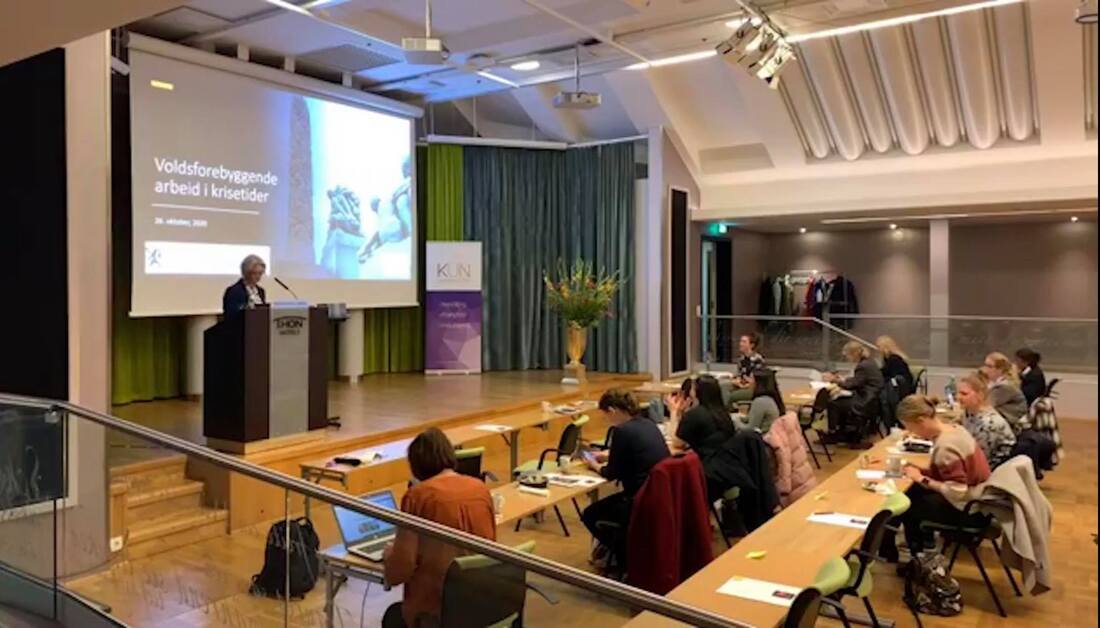|
|
|
I dag, 19. november er den internasjonale mannsdagen. Likestillingssenteret KUN har benyttet anledningen til å slippe første episode i vår nye miniserie som handler om mannsperspektivet innenfor likestilling.
- Snakk om det mann!
Dette er tittelen på vår nye podcastserie, og i episodene som kommer vil vi se nærmere på menns utfordringer sett fra et likestillingsperspektiv.
Har vi glemt gutter og menn i likestillingspolitikken og likestillingsarbeidet i Norge? Tar vi på oss kjønnsbriller som gjør at vi overser de utfordringene som gutter og menn sliter med? Og hva er det egentlig som er menns likestillingsutfordringer? Å markere mannsdagen handler ikke om å krangle om hvilke av kjønnene som har det verst, men om å anerkjenne at også menn har utfordringer. Blant disse utfordringene finner vi at menn er overrepresentert på selvmordsstatistikken, at vold og seksuelle overgrep mot menn er tabubelagt og lite snakka om, at menn er dårligere enn kvinner til å ta vare på helsa si, det er blant annet manglende fokus på prostatakreft. Rasisme og islamofobi rammer menn annerledes enn kvinner: menn med minoritetsbakgrunn mistenkeliggjøres og diskrimineres. Menn topper også voldsutøver- og kriminalitetsstatistikken, og reintegrering i samfunnet er vanskelig. Trange maskulinitets- og kjønnsroller er begrensende for oss alle, også menn. Episode en i vår miniserie om mannsperspektivet slippes på nettopp mannsdagen. Det er fordi vi mener det er viktig å bruke denne dagen til å snakke om ulike likestillingsutfordringer for menn. Ikke bare på mannsdagen, man kanskje særlig da. Menn og utenforskap
Episode 2 slippes torsdag 26. november. Da skal Fredrik Langeland, seniorrådgiver ved likestillingssenteret KUN, snakke om menn og utenforskap.
0 Comments
- Det går helt fint an å ha to mødre, for det har jo Brillebjørn. Det går an å være sterkest som jente, for det er Pippi Langstrømpe. Bøker har stor makt til å definere hva som er mulig, vanlig og ønskelig, og vi bør være bevisste på å vise barn mange forskjellige historier og rollemodeller. Likestillingssenteret KUN, Stormen bibliotek og Steinkjer bibliotek inviterer til Bokbadebalje – om barnelitteratur som bryter med kjønnsstereotypier, normaliserer mangfold og utvider mulighetsrommet for barn. Målgruppen er biblioteker, forlag og bokhandlere, barnehager, foreldre og alle andre som leser sammen med barn. Program: Hvem kan vi være, og hvem bør vi være? v/ Mari Helenedatter Aarbakke, seniorrådgiver ved likestillingssenteret KUN. Om normer for kjønn og likestilling i barnelitteratur. Foredraget ser på hvilke normer som finnes, hvordan litteratur kan bekrefte eller utfordre normene, og hvordan vi kan bruke bøker av begge slag til å utvide barns univers. Et forlag som vil forandre – OLIKA tenker mangfold og normkreativitet i alt de gjør! v/ Kristina Henkel, likestillingsrådgiver og prosjektleder i OLIKA Forlag. Bokbadebalje – hvordan lage barnebøker som både bryter og begeistrer? Intervju med de to barnebokforfatterne Tom Erik Fure og Maria Parr. Hvordan kan vi fremme et mangfold gjennom litteraturen? Hva kjøper vi inn, hvordan stiller vi ut, hva bruker vi i konkurranser og høytlesning? Tipser vi om litteratur på bakgrunn av leserens kjønn alene? Til sammen sitter vi på mange løsninger til hvordan et større mangfold av bøker kan glede nye lesere. Merk: Noe av innholdet i den opprinnelige videoen var kun tilgjengelig ut 2020. En redigert versjon er derfor lagt ut, i hht avtale om opphavsrett.
Likestillingssenteret KUN is working together with Bulgaria on an international project against violence. One of the topics discussed is child marriages. - I paid for a virgin, and you gave her to me dishonored - There was a case in Drenovets where a woman sold her 8-year-old daughter. When the boy's parents came to pick her up, she started crying for the swing because she was swinging in the yard. They unhooked the swing and took it with the girl and took her to Sofia, said 43-year-old Roza from the village of Asparuhovo. Roza is the mother of four children and grandmother of a 5-year-old granddaughter. In her village, like many other places in Bulgary, child marriages are a tradition. If the girl is not married at the age of 12-13, she is already old and "no one is going to marry her". The honor of the family depends on so called virgin blood. According to tradition, the father-in-law and the mother-in-law choose the bride and usually have no pretensions about what she should be. They take the girl very young because they want to raise them by their own character, to raise and teach them as their own children. Today, the price of a daughter-in-law varies between BGN 15,000 and 20,000, and under certain conditions the money has to be returned. Who makes the decisions? If the daughter-in-law has stayed for 2-3 years, but she does not like her new home, she has problems with her mother-in-law or her husband, "she hits her road and leaves", a Roma meshere is made (council / court within the community). The meshere occupies neither side. Five men take part in the meshere and they decide who should pay whom and how much and whether the family should stay together or not. Most often, under such conditions, half of the money is returned by the girl's family, as she has been working in another family´s house. If the fault lies with the daughter-in-law, that is, she has found a "boyfriend" and her husband finds out, his family is likely to beat her up badly before returning her. If she finds a "boyfriend" and her husband finds out, his family will return her. Before they return her she is beaten as much as all people in the world – both dead and alive. The Roma meshere forces the parents of the girl to return the money to the penny, because the fault lies with their daughter. We do not go to the Bulgarian court, we have 5 men who we call meshere to whom we pay. They are our court, says Rosa. - My first cousin was sold in Serbia when she was 12 years old. She stayed there for 2-3 years and then escaped and returned to Bulgary. There she was taught to lie, to steal, to go to other countries - to Germany, France. They had paid a lot of money for her. By paying money, they do whatever they want with you. - At the age of 17-18, the bride will perhaps form her own opinions and refuse to steal. In that case her husband will tell her: "I gave money for you and you have to make it for me", adds Roza, who is also a representative of this minority. However, she didn’t let anyone to pay for her and she says that she married her husband, because they both chose each other. She didn’t have to prove her honor to anyone, but there are other girls who are not so lucky. - For us, honor is a very big thing. Being honest and playing with the shirt is a kind of grace. The whole village praises the mother and father for "guarding" their daughter. The custom is that on the wedding day, when the newlyweds go to bed, their families line up under the window and wait to hear a scream. Then the groom shows the shirt - a white sheet or other type of white cloth, on which the old men immediately throw rakia (a typical Bulgarian traditional alkohol). - If the girl was a virgin, the blood on the sheet should look like a "freshly blossomed May rose," but if it darkens, it means it's from a finger or a vein. If so, the groom's family will claim half the money returned as they consider the girl dishonored. Roza thinks that most young girls hide before their wedding because they don´t want to get married.
- However, when they live together girls seem to forget they have ever said this, claiming that they want to stay married. She gets used to him, she loves him, because he is her first one. How much does childhood costs? According to the report of the United Nations Population Fund (UNFPA) "Against My Will - Defying The Practices That Harm Women And Girls And Undermine Equality" in Bulgary there are no official statistics on the annual number of child marriages that take place in our country. But from this and other stories that you will see in the film prepared for the project, it is clear that their number is not small. Child marriages are almost universally banned, yet they happen 33,000 times a day, every day, all around the world. An estimated 650 million girls and women alive today were married as children, and by 2030, another 150 million girls under the age of 18 will be married. The World Bank found that in just 12 countries where child marriage is prevalent, the loss of human capital would amount to $63 billion between 2017 and 2030, much more than these countries received in official development assistance. The end of this practice is important not only for the communities where it is applied, but also for the well-being of the society as a whole. Follow the project website for more information about the project or follow www.activecitizensfund.bg This article was created with the financial support of the Active Citizens Fund Bulgaria under the Financial Mechanism of the European Economic Area. The responsibility for the content of the document lies with the Center for Sustainable Communities Development and under no circumstances can it be assumed that this document reflects the official opinion of the European Economic Area Financial Mechanism and the Operator of the Active Citizens Fund Bulgaria. Istanbulkonferansen ble holdt på Thon Hotell Opera i Oslo 26.10.2020. Konferansen ble direktestreamet, og her er opptakene fra konferansen. Fra programmet til konferansen Voldsforebyggende arbeid i krisetider. Offisiell åpning ved statssekretær Hilde Barstad Vilkårene for voldsforebyggende arbeid i Europa – en konvensjon i krise? Via Teams: Kriminologiprofessor Monika Płatek, Universitetet i Warszawa Sivilsamfunnets skyggerapport om voldsarbeidet i Norge – funn og anbefalinger. Tiril Vold Hansen, Krisesentersekretariatet, Ida Hansen, Norske Kvinners Sanitetsforening og Veronika Wiese i Juridisk rådgivning for kvinner. Hva vet vi om vold i nære relasjoner under og etter lockdown i Norge? Linda Rustad, direktør ved Kilden kjønnsforskning.no Rapport fra fronten; historier fra en ny krisesenterhverdag. Wanja Sæther, leder for Krisesenteret i Salten Om danske nødkrisesenter under pandemien. Via Teams: Lisbeth Jessen, direktør ved krisesenteret Danner Den nye normalen. Hvilke ekstraordinære tiltak bør bli rutine? Mari Trommald, direktør i Barne-, ungdoms- og familiedirektoratet Rapport fra Sverige. Via Teams: Karin Sandell, informasjonssjef ved Nationellt centrum för kvinnofrid, Uppsala universitet En konvensjon for alle tider – om vold i krisetid og fredstid. Via Teams: Margunn Bjørnholt, Forsker I ved NKVTS Skyggerapportører oppsummerer konferansen. Hva tar vi med oss fra dagen? Tiril Vold Hansen, Krisesentersekretariatet og Ida Hansen, Norske Kvinners Sanitetsforening Konferansier: Mari Helenedatter Aarbakke, likestillingssenteret KUN Vi hadde mange tekniske utfordringer under konferansen, både fra scenen og med streamingen. Av den grunn er det dårlig lyd under siste del av konferansen.
|
Fagområder
All
Om oss
Ansatte English Last ned KUNs logo her Publikasjoner Kalender Dette tilbyr vi Prosjekter Likestilingspodden Nyhetsbrev Arkiv
June 2024
|





 RSS Feed
RSS Feed